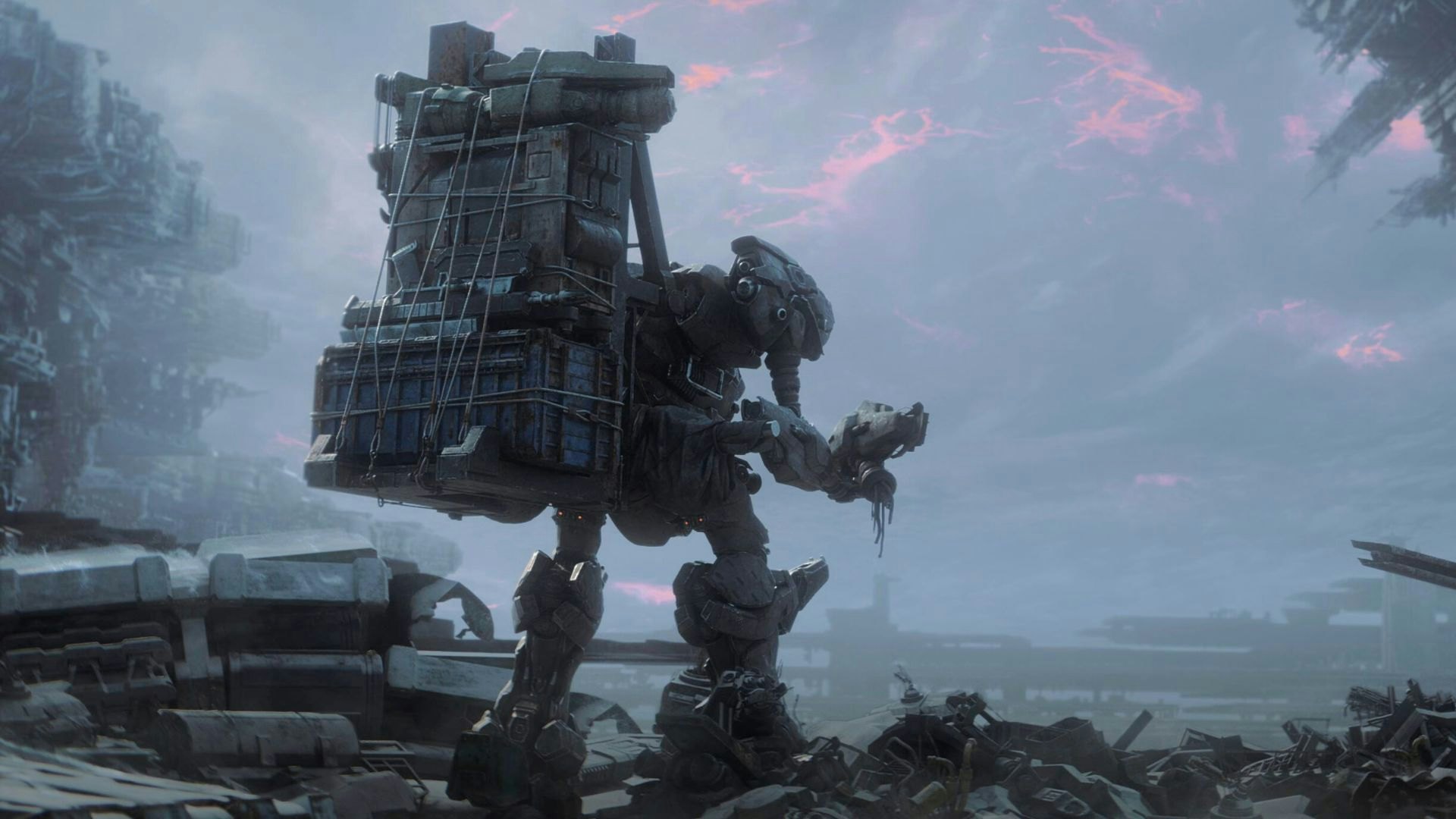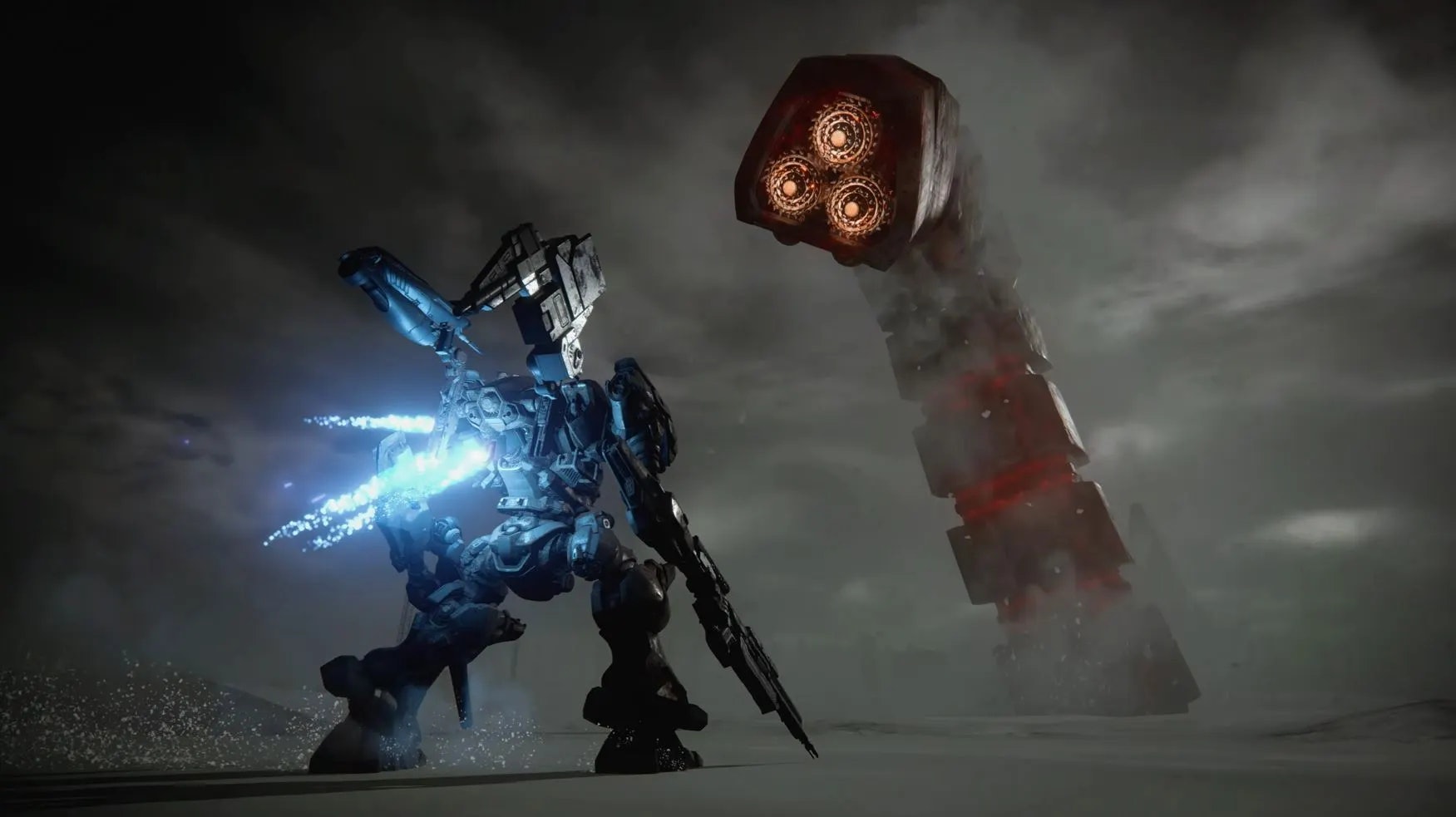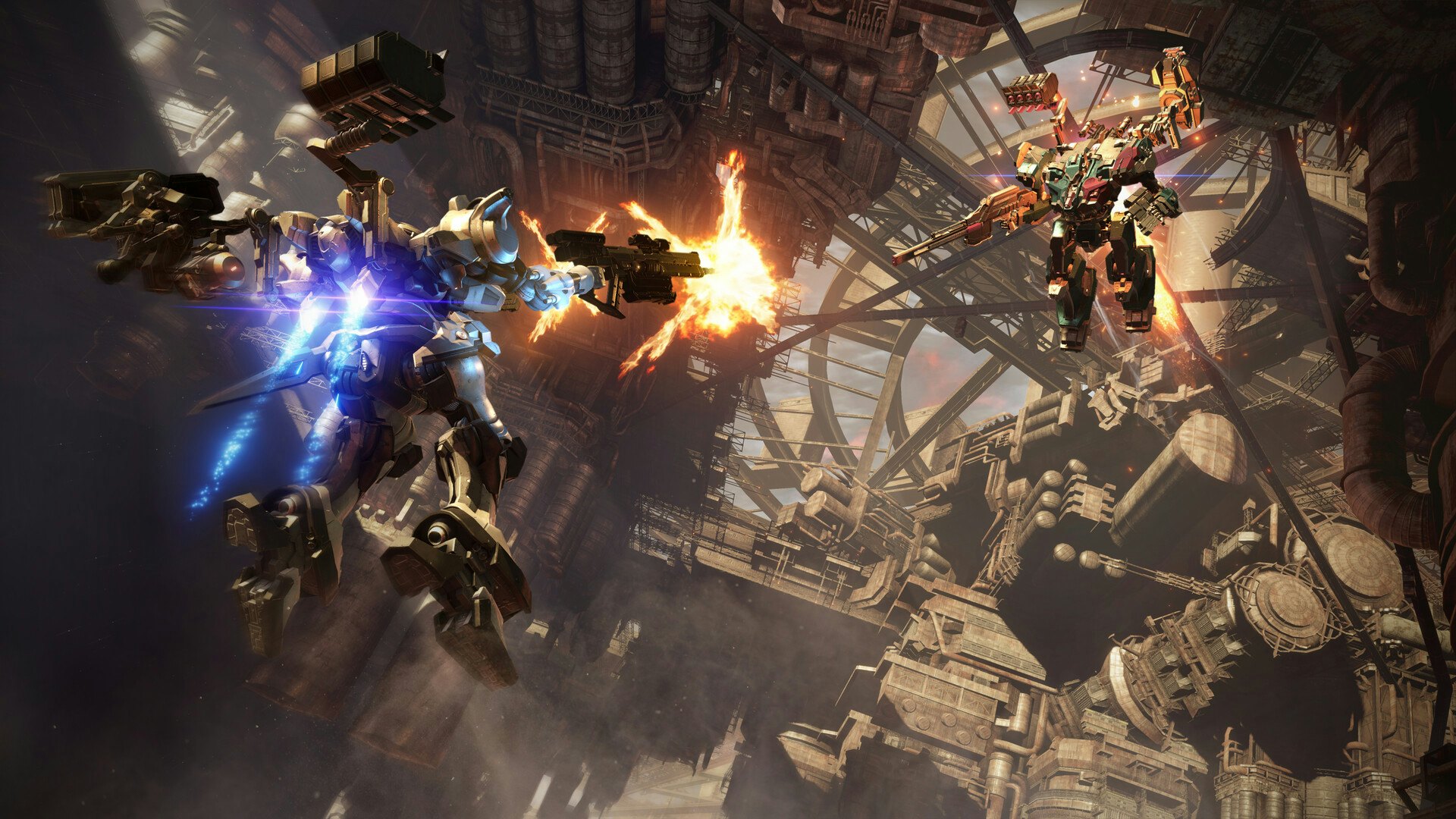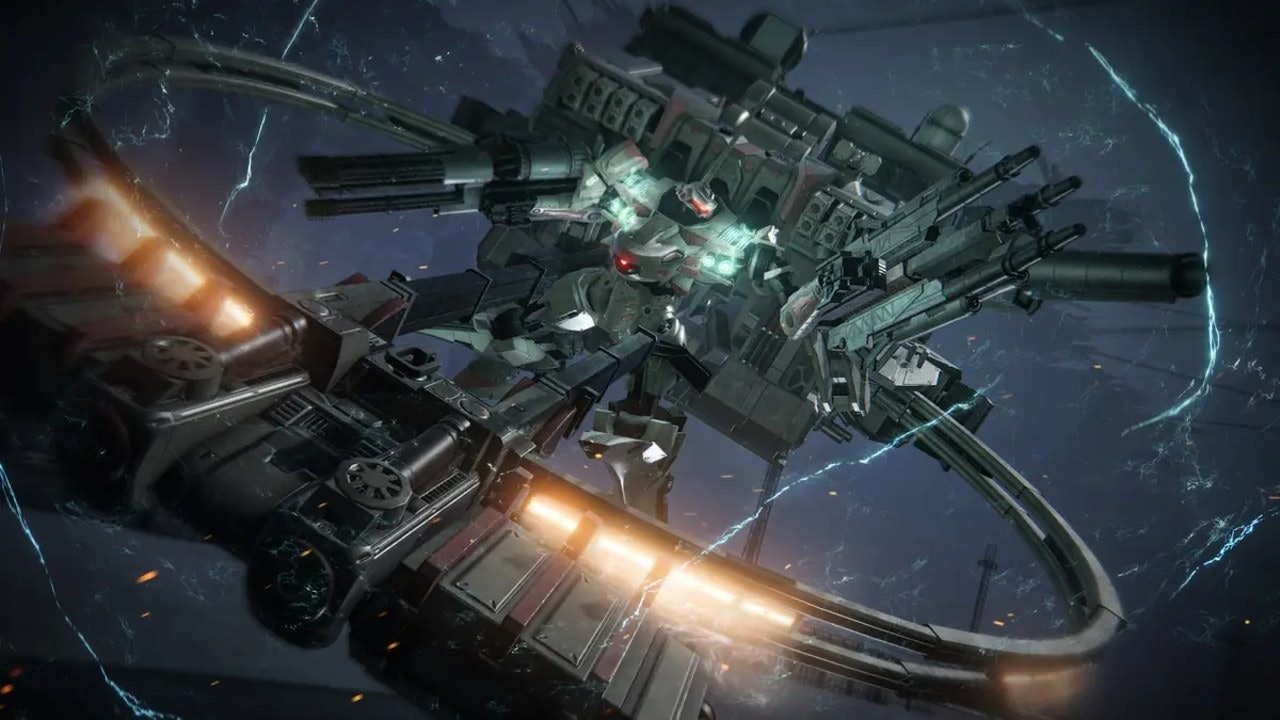
Armored Core VI: Fires of Rubicon marks FromSoftware’s long-awaited return to high-speed mech action, after nearly a decade of honing design with the Souls series and Elden Ring.
A lot has changed since the release of the last Armored Core game, and it’s abundantly clear that From is keeping that in mind. Armored Core VI fuses the design philosophies of AC and Souls, but the development team was consistently flexible about the format the game could take.
“Open world was considered, not just in the sense of do we make this open world or not? It was a case of what kind of game it should be, and what we wanted to focus on in terms of what makes Armored Core what it is,” director Masaru Yamamura tells Inverse. “That was whether we take those expansive exploration elements and traversal elements and use that in ACVI or not, and that dictated a lot of the world design.”
At a hands-on preview event, we spoke to Yamamura about the game’s story and mission-based structure, all the customization options for your badass mech, and FromSoftware’s evolving approach to difficulty.
The interview below has been edited for clarity and brevity.

The big new feature with ACVI versus past entries is the mobility of your mech. How did you approach balancing speed with satisfying, weighty combat?
Part of the main approach of making ACVI was to make it more understandable and readable as an action game. We wanted to focus on letting the player understand what's happening on-screen and be more in control of the action — understand what sort of attack is coming their way, how to evade it, or how to deal with it. This was a big part of the design iteration process. So what “speed feel” we wanted came in once that was established.
In terms of max speed, though, maybe ACIV was the height of the series. But we feel like with ACVI, there's a lot more of an ebb and flow to combat in terms of breaching that distance between the enemy and breaking away. That feeling of tempo has changed a lot in ACVI.
Over the last decade, From has gotten a lot of acclaim for its storytelling and narrative style. What kind of story are you trying to tell in ACVI?
We chose to adopt a more traditional missions structure in order for the player to immerse themselves in the Armored Core world and story. We feel like that traditional structure is suited to AC. That's going to be something a little bit different from what players are used to with games in the last 10 years, maybe. But we wanted players to understand that motivation and those objectives within the world.
That's why we took this traditional approach with the mission briefing, going on a mission, then get back and talk to your operator. Within that traditional framework, there are these more fragmented elements that fans of our recent games will be familiar with.
You can find these AC wrecks out in the field if you do a little bit of exploration. You can pick up this archive data that will let you piece together elements of the protagonist’s past or events in the world before your arrival.

There's been a lot of talk recently about difficulty and accessibility in games. How are you approaching difficulty in this game, and trying to balance newcomers to the franchise as well as longtime fans?
One of the approaches with ACVI, and in past AC games as well, has been to have these waves of difficulty. Not every mission is designed to be very difficult. The whole game is not supposed to be this slog, but after you've defeated that initial combat helicopter in that prologue mission, maybe after that, you have these relatively low-effort missions where the player is able to walk over a bunch of inferior enemies to get that release, that feeling of exhilaration, and that power fantasy feeling of being in a mech. Then, later on, you'd have more challenging and intricate boss battles. We wanted to keep that ebb and flow to difficulty.
To the second part of the question, we feel like the assembly aspect will be a lot more familiar to existing AC fans. They might understand the idea of going back to the garage and tinkering, switching up the build, switching up the weapons, in order to face a challenging situation and overcome it.
For players who aren’t as familiar with that — like Souls players or completely new fans — we want them to enjoy the assembly element, at least on a superficial level. But if they're paying attention to enemy attack patterns, observing how the enemy's behaving or how this boss pattern is going, then they can use their intuition and cunning to defeat it in the same way that they've defeated our previous action games. In that sense, we've tried to cater to both of these audiences.

How different is the final version of Armored Core VI from the initial concept? Were there any ideas or features that ended up getting cut?
It wasn't necessarily an initial idea, but one approach the game could have gone in was making it fully open-world. We went with a more traditional mission structure because the game is less suited to that sort of expansive exploration and traversal. You would have to optimize all of the builds to work with that universal exploration, every player would have to be brought onto the same page in terms of allowing for that freeform exploration.
Instead, we wanted to prioritize this level of freedom of the assembly and having players tweak the traversal performance and movement performance in a way that suits them, not the game.







